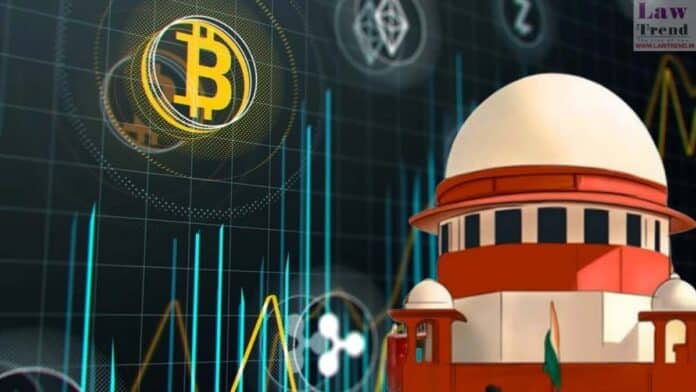The Supreme Court on Monday strongly questioned the Centre’s continued inaction in framing a clear regulatory policy for cryptocurrency trade in India, particularly for Bitcoin, raising concerns over its resemblance to the illegal hawala network and its potential economic impact.
A bench comprising Justices Surya Kant and N Kotiswar Singh, while hearing a bail plea in a high-profile Bitcoin fraud case from Gujarat, asked, “Why does the Centre not come out with a clear-cut policy on regulating cryptocurrency? There is a parallel under-market for it and it can affect the economy. By regulating the cryptocurrency, you can keep an eye on the trade.”
Justice Kant went on to call Bitcoin trade an “illicit business, more or less like hawala,” underlining the urgent need for oversight and clarity in the regulatory space.
The court was hearing the bail application of Shailesh Babulal Bhatt, who is accused of orchestrating a widespread cryptocurrency scam in Gujarat involving promises of high returns and even alleged instances of kidnapping. Representing the Centre, Additional Solicitor General Aishwarya Bhati told the court that Bhatt was “one of the biggest aggregators of Bitcoin trade in the state” and had duped multiple investors.
Bhatt’s counsel, however, argued that trading in Bitcoin is not illegal in India, citing the Supreme Court’s landmark 2020 decision that struck down the Reserve Bank of India’s circular banning banks from dealing with cryptocurrency-related entities.
Despite that ruling, the apex court had already, in an earlier hearing on May 5, voiced displeasure over the Centre’s inaction, remarking that “Bitcoin transactions appear to be a refined form of hawala business.”
On Monday, the bench reiterated its call for a firm policy response, observing that the Centre’s continued indecision left room for illegal exploitation of the system. ASG Bhati assured the bench she would seek instructions from the government on the matter.
This is not the first time the court has prodded the government for a stand. Back in February 2022, the Supreme Court had also directed the Centre to clarify the legal status of cryptocurrency transactions.
The present case spans multiple FIRs lodged across different states, with Bhatt accused of defrauding several investors through fake Bitcoin schemes promising extraordinary returns.
The court’s comments arrive amid global efforts to regulate the rapidly growing cryptocurrency sector. While several nations are moving forward with defined legal frameworks, India continues to tread cautiously, with no clear legislation in place—despite mounting cases of fraud, money laundering, and investor scams linked to digital currencies.
As the legal and regulatory vacuum persists, the Supreme Court’s latest remarks are likely to intensify pressure on the Centre to bring clarity and oversight to the cryptocurrency landscape in India.




